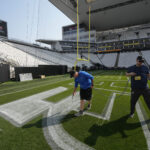To be eligible for a Uniformed Division Officer position, candidates must satisfy a comprehensive set of qualifications designed to ensure they are prepared for the demanding responsibilities of protecting national leaders and critical infrastructure. These prerequisites span various aspects, from citizenship and age to physical condition and background checks. Meeting these standards is the first step toward a rewarding career in federal law enforcement with the U.S. Secret Service.
Core Qualifications for Uniformed Division Officers
Aspiring officers must meet several fundamental criteria to even be considered for this esteemed role. These initial requirements lay the groundwork for a rigorous selection process.
Citizenship and Licensure
First and foremost, applicants must be U.S. citizens, demonstrating their allegiance to the nation they wish to serve and protect. Furthermore, possessing a current and valid driver’s license is mandatory, indicating the ability to operate vehicles, which is often necessary in law enforcement duties.
Age Requirements
Age is a critical factor, with specific restrictions in place to balance experience with physical capabilities. Candidates must be at least 20 years old but not older than 37 at the time of receiving a conditional offer of employment. This age limit ensures that new officers have ample time to serve and develop within the Secret Service before standard retirement ages. However, exceptions exist for those with prior federal civilian law enforcement experience covered by specific retirement provisions, and veterans may have slightly extended age allowances, needing to receive a conditional offer before turning 40.
Vision Standards
Visual acuity is paramount for officers who need to make critical observations and judgments in high-pressure situations. Uncorrected vision must be no worse than 20/100 binocularly, and it must be correctable to 20/20 or better in each eye. The Secret Service accommodates candidates who have undergone corrective eye surgeries such as LASIK, ALK, RK, and PRK. However, there are mandatory waiting periods post-surgery before visual tests can be conducted to ensure stability and effectiveness of the correction: two months after LASIK, six months after PRK, and one year after ALK and RK.
Image alt text: Uniformed Division officer visual requirements infographic detailing acceptable vision standards including corrective surgery waiting periods for LASIK, PRK, ALK, and RK.
Hearing Acuity
Effective communication is essential in law enforcement, making hearing ability another crucial qualification. Applicants must pass a hearing exam, with hearing loss not exceeding 25 decibels in either ear across the 500, 1000, and 2000 Hz ranges, as measured by an audiometer. Moreover, candidates must demonstrate the ability to hear a whispered voice at a distance of 15 feet in each ear without the aid of hearing devices.
Restrictions on Body Markings
Maintaining a professional appearance is part of representing the U.S. Secret Service. Therefore, visible body markings, including tattoos, body art, and branding, are prohibited on the head, face, neck, hand, and fingers (below the wrist bone). An exception is made for a single, conservative ring tattoo on one finger, such as a wedding band. Applicants with visible body markings must commit to having them medically removed at their own expense before starting their service.
Physical Health and Fitness
The demands of a Uniformed Division officer require excellent physical health and condition. Candidates must pass an Applicant Physical Abilities Test to demonstrate they meet the necessary fitness levels for the rigorous duties involved.
Training Requirements
Comprehensive training is provided to equip officers with the skills and knowledge needed for their roles. This includes 13 weeks of intensive law enforcement training at the Federal Law Enforcement Training Center (FLETC) in Georgia or New Mexico, followed by 16 weeks of specialized training at the James J. Rowley Training Center in Maryland. Successful completion of these training programs is mandatory, and failure on the first attempt may lead to separation from the Secret Service.
Security Clearance and Background Investigation
Given the sensitive nature of the work, officers must qualify for top-secret security clearance. This involves undergoing a thorough background investigation, which includes checks on driving records, drug screening, medical evaluations, and polygraph examinations. This rigorous process ensures the highest levels of integrity and trustworthiness among those entrusted with protective responsibilities.
Selective Service Registration
In compliance with federal regulations, male applicants born after December 31, 1959, must certify that they have registered with the Selective Service System or are exempt from this requirement.
Appointment Type and Tenure
Initial appointments to this position are for a limited term of 3 years and 120 days under an excepted appointment. Following this period, officers may be converted to career status or separated based on the expiration of their appointment, depending on performance and service needs.
Firearm Proficiency
Carrying and using a firearm is a fundamental aspect of a Uniformed Division officer’s duty. Maintaining firearm proficiency is mandatory, and any conviction of a misdemeanor crime of domestic violence disqualifies an applicant, unless pardoned or the conviction has been expunged.
Grade Level LE-01 Specific Requirements
For candidates qualifying for the LE-01 grade level, which has a starting salary of $73,502, there are specific educational and age-related criteria.
Education Requirement
At a minimum, applicants must possess a high school diploma or a certificate of equivalency, demonstrating a foundational level of education necessary for the role.
Age at Application and Appointment
While the minimum age to apply is 20, candidates must be 21 years of age by the time of their official appointment to the Uniformed Division. This ensures a level of maturity and responsibility deemed necessary for the position.
Meeting these qualifications is a significant achievement and represents the first step toward joining the elite Uniformed Division of the Secret Service, dedicated to protection and service at the highest levels.


